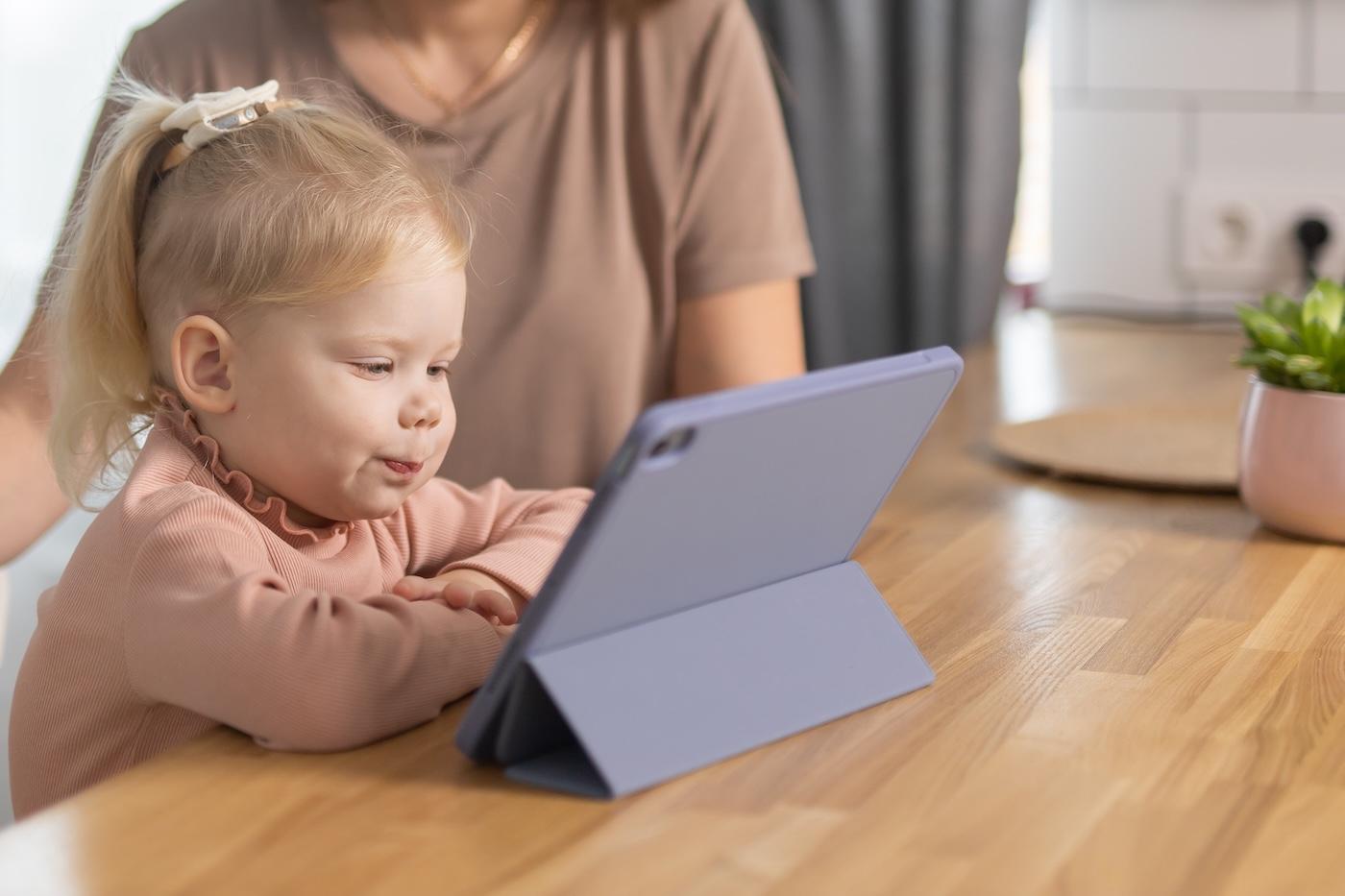TODDLER
Why Blocks Are the Ultimate Baby and Toddler Toy
Wooden blocks are super-fun toys and the ultimate baby and toddler learning tool. Here, all the ways blocks build your tot’s brain.

Written by
Happiest Baby Staff

Blocks are one of those magical toys that never goes out of style and can be played with from 6 months to, well...kiddos never have to stop! Little ones love to gnaw on them, bang them together, and, of course, knock over your amazing block creation. Meanwhile, toddlers relish their new job as Chief Block Stacker, slowly progressing to tower-builder, castle-maker, and all-around master builder. And while it all looks like fun and games, tots and big kids alike are getting so much more out of block play. Here’s what blocks are so great at teaching.
The Benefits of Block Play
Bolstering motor development.
Fine-motor skills are the small movements of wee fingers and hands that eventually lead to your little one to be able to tie their shoes, button their shirt, and write you a Valentine’s card. Every time your toddler or preschooler holds, manipulates, or positions blocks on a growing stack, they are honing their developing grasping skills, their body awareness, and their coordination.
Teaching cause and effect.
Banging two blocks together shows your tot that, if I do this action, this noise will happen. Knocking over your block tower masterpiece shows your kiddo, If I push on this, the tower will fall. While you may think, so what?, know that your young tyke is just learning that they have the power to make things happen! This is exciting stuff that ultimately helps your child develop early communication and cognition skills, setting the stage for your future scientific investigator!
Improving early math know-how.
While there’s absolutely nothing wrong with allowing your kiddo to explore blocks during free play, it’s also super beneficial when a grown-up offers a wee bit of direction. For example, Purdue University researchers found that when adults offered 3- to 5-year-olds play prompts, like asking kiddos to build a tower and, later, to copy-cat images into a block structure, the children experienced gains in three mathematics skills—counting, shape recognition, and mathematical language—compared to children in a control group. Help the skill along by counting bricks and using them as math prompts. (I want four square blocks, but I only have two. How many more do I need?)
Developing STEM smarts.
Block-play has been shown to bolster more than just the “M” in STEM. They actually help improve the entire acronym...Science, Technology, Engineering, and Math! One of the reasons: Building with blocks requires what’s called spatial reasoning, which in part, is the ability to visualize what an object will look like after it’s rotated. This type of mental gymnastics is increasingly connected to achievement in STEM fields—and geography, too.
Building social skills.
Starting around age 4, children begin to get the itch to build with other kiddos...but there can be no epic builds without social skills! Here, block play acts as the bridge that helps children learn the art of communication, cooperation, responsibility, and leadership. After all, budding builders need to work together to determine what to construct, how to do it, and who has what job. It’s pretty exciting to watch kids build friendships as they build blocks.
Fostering creativity.
Unlike single-purpose toys (think: electronic toys), a block is never just a block. It’s a car. It’s a cow. It’s a phone. It’s an integral part of a boat, a parking garage, a castle, a farm, a zoo, a superhero base…anything your little one can dream up! Blocks, quite simply, inspire children to create, to build, and to push their imagination to the limits. As a bonus, remember: Creativity is a must for any type of problem-solving, too!
Block Party! Your Baby’s Block Timeline
Babies: Carrying and Exploring
Don’t expect any block-made castles just yet! Right now, tots are very interested in learning about what blocks can do, which means there’s lots of touching, carrying, banging, mouthing, and knocking down blocks. At 12 months, however, many tots can build towers up to four blocks high...then they promptly knock them over!
2- and 3-Year-Olds: Super-Stacking
Let the building begin! Tykes at this age love to stack and line blocks up. In fact, at 2 years old, many kiddos can build a tower six blocks high! You'll notice lots or repetitions in their creations, which means they are starting to learn all about patterns. Fun!
3- and 4-Year-Olds: Experimentation and Imagination
Here come the bridges and passageways, ripe for action figures and small trains and cars to utilize. Expect a lot of trial and error right now as your kiddo learns about balance. At the same time, marvel at their boon in fine-motor development and hand-eye coordination.
4-Year-Olds: Buildings and Symmetry
Around age 4, kids love to create enclosures, using them as props in their imaginative play. That means, your entire living room may be taken up by giant block creations that loosely represent forts, farms, parking garages—the possibilities are truly endless! Here’s where your tot’s spatial awareness skills really kick in. At the same time, you’ll notice that sorting and matching blocks become way more important to your tyke, as does creating symmetry in their builds.
4- and 5-Year-Olds: Houses
Builds are starting to look more realistic and detailed...and they require more planning on your kiddo’s part. They need time to get it right! Right now, dramatic play goes hand-in-hand with block-building, so you’ll overhear lots of action-packed adventures occurring in Block Town. Another awesome development: Cooperative building starts around now.
5 Years and Up: Complexity
When children reach school age, their dexterity and building skills really shine as they construct more complex, multilevel, and detailed structures. Kids love to try and replicate buildings they’ve seen in real life. They enlist construction buddies for cooperative play and incorporate other toys and items into their builds. (Is that a toilet paper roll in the middle of your kid’s block structure?) Finally, imagination is going strong, with blocks representing things like planes and cars.
Disclaimer: The information on our site is NOT medical advice for any specific person or condition. It is only meant as general information. If you have any medical questions and concerns about your child or yourself, please contact your health provider.
SHARE THIS ARTICLE
MOST LOVED
Sleepytime Sidekicks












